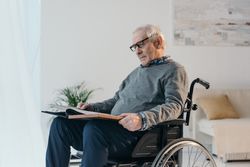
When a parent or grandparent has a stroke, it can introduce changes to the whole family. By learning more about the condition, you can understand the challenges they’re experiencing. With the help of a skilled nursing program, those who have sustained strokes will receive the care and recovery services they need.
A Guide to the Different Types of Strokes
1. Transient Ischemic Attack (TIA)
TIA, also known as a mini-stroke, is caused by a temporary blockage of blood flow to the brain. The condition is considered a warning sign because many people who experience a mini-stroke have a more severe one within a year.
Symptoms are the same for every stroke: numbness on one side of the body, blindness, reduced motor functioning, dizziness, and slurred speech. These symptoms last for only a few minutes since the body quickly releases anticoagulants to eliminate the blockage. While a TIA doesn't cause permanent damage, your loved one will still require medical attention. Call 911 immediately if you observe them having one.
2. Ischemic
Ischemic strokes are the most common. They occur when clots form in cranial arteries and block oxygen-rich blood from reaching the brain.
 If the stroke happens in the left part of the brain, the right side of the body experiences paralysis. Memory loss and problems speaking and understanding conversations are common. Behavioral changes also occur, with the patient exhibiting a more cautious personality.
If the stroke happens in the left part of the brain, the right side of the body experiences paralysis. Memory loss and problems speaking and understanding conversations are common. Behavioral changes also occur, with the patient exhibiting a more cautious personality.
Right brain strokes cause paralysis on the left side of the body. While memory loss is also common, right brain strokes create vision problems. They may also result in behavioral changes, making the patient more inquisitive.
3. Hemorrhagic
High blood pressure, aneurysms, and arteriovenous malformations (AVM) can lead to an artery bursting. Blood is released into the brain, causing a hemorrhagic stroke. The pressure damages brain cells, decreasing functionality.
Though the stroke can affect motor skills, programs offering skilled nursing can refine a patient’s movements and improve their quality of life.
4. Brain Stem
Strokes can also occur in the brain stem. In severe cases, it will affect both sides of the body, causing paralysis below the neck. Due to the “locked-in” state, patients may also be unable to speak.
5. Cryptogenic
Cryptogenic strokes are not caused by blood clots and occur because of an unknown factor. Like all strokes, cryptogenic strokes can affect motor skills, speech, and cause brain damage.
To find the cause, doctors will perform multiple diagnostics, including an MRI and CT scan. By focusing on finding the root cause, doctors can prevent another stroke from happening.
When a loved one experiences a stroke, their ability to care for themselves may become limited. For nearly 60 years, Lakeview Christian Home has provided assistance when it’s needed most. Our skilled nursing staff has been trained in stroke recovery with a focus on redeveloping motor skills. With locations in The Villages, River Bend, and Carlsbad, NM, our patients are treated with customized long-term care, and, most importantly, the dignity they deserve. For more information, visit our website or call (575) 885-3161.
About the Business
Have a question? Ask the experts!
Send your question

